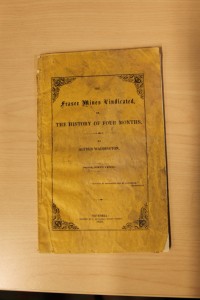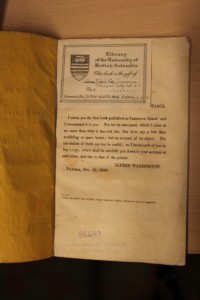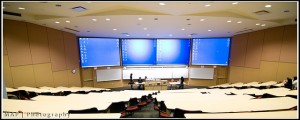Lawrence Krauss – Life, the Universe, and Nothing: A Cosmic Mystery Story
On April 9, 2011, Professor Lawrence Krauss’ gave a talk titled, “Life, the Universe, and Nothing: A Cosmic Mystery Story.” Krauss’ work has been primarily in theoretical (as opposed to experimental) physics, and he has published research on a great variety of topics within that field. Krauss is a renowned cosmologist and popularizer of modern science and director of the Origins Project at Arizona State University. Hailed by Scientific American as a rare public intellectual, he is the author of more than three hundred scientific publications and 8 books, including the bestselling The Physics of Star Trek, and the recipient of numerous international awards for his research and writing. He is an internationally known theoretical physicist with wide research interests, including the interface between elementary particle physics and cosmology, where his studies include the early universe, the nature of dark matter, general relativity and neutrino astrophysics.
His soon to be published book, A Universe From Nothing: Why There Is Something Rather Than Nothing is already garnering strong reviews. Exploring the scientific advances that provide insight into how the universe formed, Krauss ultimately tackles the age-old assumption that something cannot arise from nothing by arguing that not only can something arise from nothing, but something will always arise from nothing. One review of this book says:
Lawrence Krauss’s provocative answers to these and other timeless questions in a wildly popular lecture now on YouTube have attracted almost a million viewers. The last of these questions in particular has been at the center of religious and philosophical debates about the existence of God, and it’s the supposed counterargument to anyone who questions the need for God. As Krauss argues, scientists have, however, historically focused on other, more pressing issues—such as figuring out how the universe actually functions, which can ultimately help us to improve the quality of our lives.
– Amazon Book Review
Questions For Discussion:
One of the classic arguments for the existence of God is known as the “First Cause” argument. It works from the premise that in the universe every event is the effect of a cause. As a result, the events that caused today’s events must have had causes for themselves, and those causes in turn must have had their own causes, and so forth, creating a chain. Many religious proponents argue that First Cause is itself the strongest evidence for the existence of God. So do scientists, such as Stephen Hawking, who argue it is the laws of physics themselves brought the Universe into being, rather than God. What are your thoughts to this debate?
In what is now a classic debate, Christian apologist Dr. William Lane Craig recently debated Lawrence Krauss in North Carolina in an attempt to address the question: “Is there (sufficient) evidence for God? How does one try to prove their hypothesis against a belief? Is there evidence for God based on what we know about the universe?
In the past decade, there have been a number of best-selling books by proclaimed atheists and scientists regarding the existence of God. Richard Dawkins (The God Delusion), Christopher Hitchens (God Is Not Great), and Sam Harris (The End of Faith) all point out the flaws of religion and the harmful effects of it. Can religion be equated with God? Is religion the same as God?
One of the most prominent theologians of our time, Alister McGrath, once said “As a child I never had any interest in Christianity,’ he says. ‘I went through the motions of going to church with my parents but neither my heart nor my head was in it. It was while I was at the Methodist College, probably aged around 15 or 16, that I became an atheist – somebody who deliberately and intentionally does not believe in God and thinks that anyone who does believe in God is mentally deficient or seriously screwed up.” There are a number of famous theologians who had converted from atheism to being proponents of Christianity, such as C.S. Lewis. In your opinion, what does this say about religion, faith, and reason?
Agnosticism is the view that the existence of God is unknown or unknowable. Agnosticism is criticized from a variety of standpoints. Some religious thinkers see agnosticism as a limitation of the mind’s capacity. Some atheists criticize that agnosticism is indistinguishable from atheism. What are your thoughts about this issue? What do other world religions have to say about this argument?
What are some online webpages you think might be relevant to the topic of the science, the universe, and the question of God’s existence.
God vs. Science – http://www.time.com/time/magazine/article/0,9171,1555132,00.html
Science Will Never Support Religion – http://bigthink.com/series/38/series_item/4523#player
Science vs Faith: Believe It or Not? – http://bigthink.com/ideas/20251
Lionel Tiger – Professor of Anthropology, Rutgers University on Science and God – http://bigthink.com/lioneltiger
What Resources and Books Might Be Useful for Follow-up Reading?
Science vs. religion: what scientists really think by Elaine Howard Ecklund. [UBC library online resource]
Based on a survey and interviews with scientists at more than 20 elite U.S. universities, Ecklund’s book argues that other scientists must step up to the table of dialogue and that American believers must embrace science again. Both science and religion are at stake if any less is done.
Universe or multiverse? edited by Bernard Carr [UBC Okangan Library QB981.U557 2007]
Recent developments in cosmology and particle physics, such as the string landscape picture, have led to the remarkable realization that our universe – rather than being unique – could be just one of many universes.
Cosmic beginnings and human ends: Where science and religion meet edited by Clifford N. Matthews, Roy Abraham Varghese [UBC Koerner Library BL241.C588 1995]
Science and religion meet in a fine series of statements by thinkers ranging from scientists to philosophers. This isn’t just a Christian collection: opinions range across and board and are based on a variety of beliefs; but all consider the basics of connections between science and religion; and all provide interesting reviews of human spiritual and scientific evolution.
Vancouver Institute lectures are free and open to the public. The Vancouver Institute was established in 1916 to serve as a liaison between “town and gown” in providing lectures of general public interest. For more information about the Vancouver Institute, please visit its homepage at http://vaninst.ca
For more information, please contact Allan Cho
Margot Filipenko, Anne Zavalkoff, Frank Baumann and Dot Clouston – The Match: The New B.Ed Program and Problem Based Learning
Webcast sponsored by the Irving K. Barber Learning Centre and hosted by the Faculty of Education. In September 2012 the re-visioned teacher education (BEd) program will begin. The presenters of this seminar will discuss the ways their long-standing PBL curriculum will fit with the new CREATE curriculum.
Relevant Books and Articles at UBC Library
Zavalkoff, A. (2002). Teaching the teachers. Journal of Lesbian Studies, 6(3-4), 243. [Link]
Cramer, E. P., Ed. (2002). Addressing homophobia and heterosexism on college campuses. Harrington Park Press, The Haworth Press, Inc.
Hartley, P., Woods, A., Pill, M., & Taylor & Francis eBooks – CRKN. (2005). Enhancing teaching in higher education: New approaches for improving student learning. New York; London: Routledge. [Link]
Farr Darling, L., Erickson, G. L., & Clarke, A. (2007). Collective improvisation in a teacher education community (1. Aufl. ed.). Dordrecht: Springer. doi:10.1007/978-1-4020-5668-0 [Link]
UBC Library Research Guides
Dr. Roger Wong – Elder Care: Dementia, Alzheimer's and Self-Care
Webcast sponsored by the Irving K. Barber Learning Centre in partnership with Woodward Library and Richmond Public Library. The Health Information Series is an ongoing public lecture series that take place in the Lower Mainland community. Dr. Roger Wong is Clinical Professor in the Division of Geriatric Medicine, Department of Medicine, University of British Columbia (UBC), Assistant Dean of Postgraduate Medical Education of the UBC Faculty of Medicine, and Associate Program Director of the UBC Internal Medicine Residency Program. Dr. Wong is also Consultant Physician and Head of the Geriatric Consultation Program, Vancouver General Hospital. His clinical research focuses on hospital medicine in vulnerable older adults, including quality improvement in acute care geriatrics. He has received numerous awards of appreciation from the Alzheimer Society of British Columbia to recognize his advocacy work in the community.
UBC Library Resources
Sztramko, R., Chau, V., & Wong, R. Y. (2011). Adverse drug events and associated factors in heart failure therapy among the very elderly. Canadian geriatrics journal: CGJ, 14(4), 79. [Link]
Wong, R. Y. (2013). Improving Health Care Transitions for Older Adults Through the Lens of Quality Improvement. JAMDA. [Link]
Villanyi, D., Fok, M., & Wong, R. Y. (2011). Medication reconciliation: identifying medication discrepancies in acutely ill hospitalized older adults. The American journal of geriatric pharmacotherapy, 9(5), 339-344. [Link]
UBC Research Guides
IKBLC Presents the Victoria Learning Theatre
We have been featuring resources from Rare Books and Special Collections that relate to the place names used in the Irving K. Barber Learning Centre as room names. Sometimes we find it challenging to find a related resource; sometimes the challenge is in narrowing down our research!
Such is the case with Victoria. Victoria B.C., on the southern tip of Vancouver Island, is our province’s capital and hence the place of many events in the province’s history. Rare Books and Special Collections contains almost innumerable books, maps, documents, and photographs related to Victoria. However, to rare books enthusiasts, there is one (or two) events from Victoria’s history that are of particular note: the publication of the first book (or books) to be printed in British Columbia.
What is largely accepted to be the first book printed in B.C. is Order in council constituting the Supreme Court of Civil Justice of Vancouver Island and rules of practice and forms to be used therein, which basically amounted to a “rule book” for the Supreme Court in Victoria. It was printed at the Victoria Gazette in November 1858.
The copy photographed above is particularly special: it was David Cameron‘s personal copy! David Cameron was the first Chief Justice of the Supreme Court of British Columbia- in other words, not only did he own the book, he wrote the book too. This copy was given to us by Dr. Wallace Chung, on the occasion of the re-opening of theChung Collection in Spring 2008. David Cameron’s signature can be seen on the cover, and on the Act to provide for the Administration of Justice in Vancouver’s Island, tipped in the front:
So, first book printed in B.C.- straightforward story, right? There was some debate over the years regarding which came first: Order in Council or Alfred Waddington’s Fraser Mines Vindicated, or, the History of Four Months.:
It may have had something to do with Waddington’s preface, describing itself as “the first book published on Vancouver Island.” However, even Waddington’s own fine print explains that, “When the above was written Judge Cameron’s Book of Practice had not yet appeared.”
Apparently the Order in Council leapfrogged ahead of Fraser Mines by mere days. In Lowther’s A Bibliography of British Columbia, she explains that Order in Council “has the distinction of being the first book printed in the colony of Vancouver Island, coming off the press ahead of Waddington’s Fraser mines vindicated.”
In the Barber Centre, the Victoria Learning Theatre is room 182. This is a large lecture theatre and is often used for special events.
The blog entry is cross-posted at UBC Rare Books and Special CollectionsClaire Campbell – Wilderness Culture and the Nature of Canada
Professor Campbell is the Director of Canadian Studies at Dalhousie University. She teaches Canadian environmental history, history of cultural landscapes, national and regional identities in Canada, and history of the arts. Her areas of expertise also include public history and Scandinavian history. This talk takes its inspiration from a passage in Stephen Leacock’s 1936 essay, “I’ll stay in Canada,” in which he writes: “To all of us here, the vast unknown country of the North, reaching away to the polar seas, supplies a peculiar mental background.” Leacock’s apparent affinity for a vast and never-seen space, the comfortable nationalization of an Ontario point-of-view, and the belief that Canadians share a “peculiar mental background” by virtue of our geographical location says a lot about Canadian attitudes toward nature in the twentieth century.
Claire Campbell interrogates this by focusing on the arts to examine Canadians’ cultural investment in both the concept and geography of wilderness spaces. Her talk will focus on post-Confederation Canada. Her concern is with Canadians trying to act as Canadians; naturalizing a certain territory and certain behaviour. It will draw together an eclectic constellation of sources to give a sense of the ubiquitous reach of wilderness references, moving from the more imaginative and impressionistic in the arts, to popular and consumer culture, and then to physical places where we have attempted to realize an ideal. Webcast sponsored by Irving K. Barber Learning Centre and hosted by Green College.
Select Articles Available at UBC Library
Campbell, C. E., & DOAB: Directory of Open Access Books. (2011). A century of parks Canada, 1911-2011. Calgary, Alta: University of Calgary Press. [Link]
Campbell, C. E. (2005). Shaped by the west wind: Nature and history in Georgian bay. Vancouver: UBC Press.
Campbell, C. (2008). ‘It was Canadian, then, typically Canadian’: Revisiting wilderness at historic sites. British Journal of Canadian Studies, 21(1), 5-34. doi:10.3828/bjcs.21.1.2. [Link]
Summerby-Murray, R. E., & Campbell, C. E. (2013). Land and sea: Environmental history in Atlantic Canada. Fredericton, NB: Acadiensis Press.
UBC Library Research Guides
Michael Park & Friends – Composers' Collective Series – Michael Park and Friends III
Webcast sponsored by Irving K. Barber Learning Centre and hosted by Green College. The Composers’ Collective is proud to offer the third annual concert of Michael Park and Friends, an evening featuring contemporary works performed by the pianist Michael Park and accompanying guests. Michael Park is currently a third-year DMA student in Music Composition at UBC, while remaining active as a pianist, interpreting music of both established and emerging contemporary composers. This intimate fireside concert of chamber music, in the tradition of the 19th century salon, demonstrates the eclectic nature of contemporary Western Art Music. The innovation, ingenuity and beauty of today’s musical scene will be given focus through live performances and introductions from the composers themselves.
Relevant Books and Articles at UBC Library
Kolt, R. P. (2015). Nationalism in western art music: A reassessment. National Identities, 17(1), 63-71. doi:10.1080/14608944.2014.920806 [Link]
VanWeelden, K. (2012). Classical music as popular music: Adolescents’ recognition of western art music. Update: Applications of Research in Music Education, 31(1), 14-24. [Link]
UBC Library Research Guides
Warren Cariou and Marie Clements – Play Chthonics: New Canadian Readings
Warren Cariou is from Meadow Lake, Saskatchewan, where he grew up in a family of Métis, German, and French heritage. He has written a book of novellas, The Exalted Company of Roadside Martyrs, and a memoir/cultural history entitled Lake of the Prairies, and he has also edited several texts by Aboriginal writers including Marvin Francis’s Bush Camp and the recent anthology from Kegedonce Press: W’daub Awae: Speaking True. He has recently produced a documentary film, Land of Oil and Water, and he is working on a documentary about storytelling. He is also working on a novel and a collection of poems. Cariou is a Canada Research Chair at the University of Manitoba, where he directs the Centre for Creative Writing and Oral Culture. Marie Clements is an award-winning performer, playwright, screenwriter, director, producer and founding artistic director of urban ink productions and fathom labs highway. Her ten plays including Copper Thunderbird, Burning Vision, The Unnatural and Accidental Women, and Urban Tattoo have been presented on some of the most prestigious stages for Canadian and international work including the Festival de Theatre des Ameriques (Urban Tattoo 2001, Burning Vision 2003) in Montreal, and The Magnetic North Festival (Burning Vision 2003 and Copper Thunderbird 2007) in Ottawa, and have garnered awards including 2004 Canada-Japan Award, short listed for the 2004 Governor General’s Literary Award, Jessie Richardson Awards and a Jack Webster Journalism nomination. As writer and producer her full-length play Copper Thunderbird premiered as a co-production with The National Arts Centre in Ottawa, May 2007 and at The Magnetic North Festival 2007.
Relevant Books and Articles at UBC Library
Cariou, W. (2002). Epistemology of the woodpile (the woodpile metaphor in Canadian and American fiction). University of Toronto Quarterly, 71(4), 909-917. [Link]
Cariou, W. (2007). Demography in the balance. Literary Review of Canada, 15(8), 22. [Link]
Cariou, W. (2006). Humanity behind bars. Literary Review of Canada, 14(1), 18. [Link]
UBC Library Research Guides
"Chew On This"- The Business Case Behind Sustainable Food
Rebecca Irani, marketing and communications manager at UBC Bookstore, Annie Moss and Randy Hooper, founders of Discovery Organics and Chef Steve Golob from Place Vanier Residence will discuss the business case behind sustainable food and the cost and benefit of eating local, organic, and fair trade. Speakers will discuss the business case behind sustainable food.
Hosted by Common Energy UBC, Oxfam UBC, and the UBC Commerce Undergraduate Society’s Sustainability Committee, “Chew On This,” is a week-long series of lectures, panel discussions, and workshops. Common Energy UBC is a student-run organization of diverse and forward-thinking individuals working to incorporate sustainability into all aspects of the UBC community. It aims to affect real change by building strong networks and working proactively with the University, while fostering leadership and engaging peers through innovative programming. Oxfam UBC is an organization committed to developing innovative ways to support Oxfam’s important aid and relief work, and to raise awareness of global poverty. The UBC Commerce Undergraduate Society‘s Sustainability Committee works to provide opportunities for Sauder students to educate themselves on what sustainability means in the context of business and motivate students to integrate sustainability into their professional and personal lives. As well as using the CUS as a model for how sustainability can be implemented into the operations and strategic thinking of an organization. The purpose behind this week is to open a dialogue about sustainable food on campus and engage students through a variety of different forums. This is an opportunity for students, faculty, and staff to engage in an open discussion around these topics which are growing increasingly important as the world’s population continues to grow and the effects of climate change on food production begin to show.
Relevant Books and Articles at UBC Library
Eweje, G., Perry, M., & Emerald Business,Management & Economics Book Series. (2011). Business and sustainability. Bingley; Ipswich: Emerald Group Publishing Limited. [Link]
Wells, P. E., & ebrary eBooks. (2013). Business models for sustainability. Northampton: Edward Elgar Publishing, Incorporated. doi:10.4337/9781781001530 [Link]
Ionescu-Somers, A., Steger, U., & Palgrave Connect Business & Management Collection 2008. (2008). Business logic for sustainability: A food and beverage industry perspective. New York; Basingstoke [England]: Palgrave Macmillan. [Link]
UBC Library Research Guides
"Chew On This"- Food Security, Eh? A Panel Discussion on Sustainable Food in a Canadian Context
Webcast sponsored by the Irving K. Barber Learning Centre, hosted by Common Energy UBC, Oxfam UBC, and the UBC Commerce Undergraduate Society’s Sustainability Committee. “Chew On This,” is a week-long series of lectures, panel discussions, and workshops. A diverse group of panelists will share their research and thoughts on the topic of Canada and what it means to have sustainable food in Canada.
Panelists include:
* Dr. Andrew Riseman, Associate Professor of Applied Biology and Plant Breeding in the Faculty of Land and Food Systems; co-chair of the Campus Academic Plan committee working to guide the future of the UBC Farm.
* Dr. Sean Smukler, Assistant Professor of Applied Biology and Soil Science; Junior Chair, Agriculture and the Environment; research working with farmers to assess impacts of farm management practices.
* Dr. James Vercammen, Professor in both the Faculty of Land and Food Systems and the Sauder School of Business; research focussing on food and resource economics.
* Will Valley, Project Coordinator, Think&Eat Green@School; member of Inner City Farms. Will’s research interests include the analysis and application of community-engaged scholarship and food system education
* Anelyse Weiler, Communications Coordinator, UBC Farm
* and Sophia Baker-French, Registered Dietician; MSc Candidate in Human Nutrition; previous Research Assistant with Think and Eat Green @ School; prior coordinator at the UBC Farm School Tours program.
Moderator: Amy Frye, Acting Director of UBC Farm
Relevant Books and Articles at UBC Library
Chapagain, T., & Riseman, A. (2012). Evaluation of heirloom and commercial cultivars of small grains under low input organic systems. American Journal of Plant Sciences, 3(5), 655-669. doi:10.4236/ajps.2012.35080 [Link]
Chapagain, T., & Riseman, A. (2014). Barley-pea intercropping: Effects on land productivity, carbon and nitrogen transformations. Field Crops Research, 166, 18-25. doi:10.1016/j.fcr.2014.06.014 [Link]
Sánchez-Moreno, S., Smukler, S., Ferris, H., O’Geen, A. T., & Jackson, L. E. (2008). Nematode diversity, food web condition, and chemical and physical properties in different soil habitats of an organic farm: 1. Biology and Fertility of Soils, 44(5), 727. doi:10.1007/s00374-007-0256-0 [Link]
Brodt, S., Klonsky, K., Jackson, L., Brush, S. B., & Smukler, S. (2009). Factors affecting adoption of hedgerows and other biodiversity-enhancing features on farms in California, USA. Agroforestry Systems, 76(1), 195-206. doi:10.1007/s10457-008-9168-8 [Link]
UBC Library Research Guides




